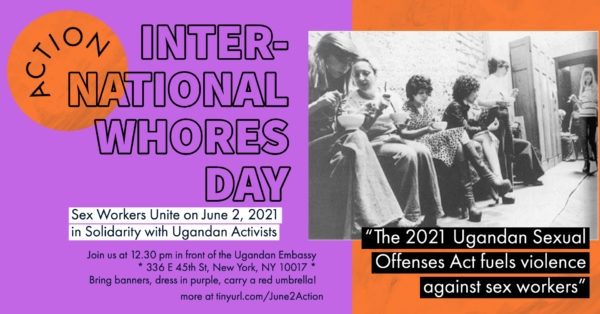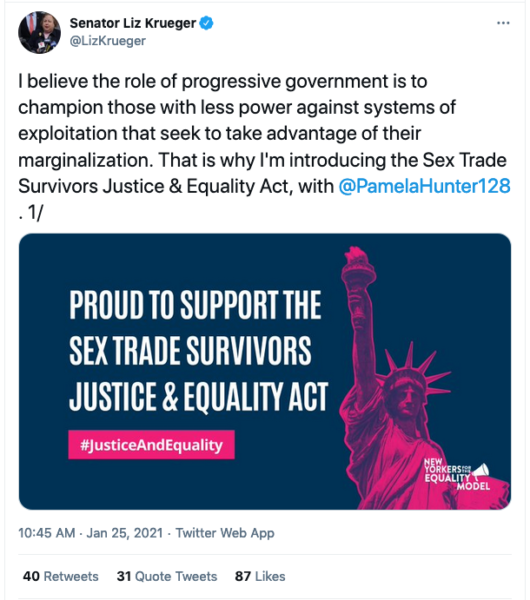We are in solidarity with the many other groups taking leadership and working on this tragedy such as Red Canary Song, Coalition for Rights & Safety for People in the Sex Trade and the Massage Parlor Outreach Project who are working to build safety and power by and for Asian migrant sex workers, and for folks like SNaP Co., who are working towards an end to prisons and policing in Atlanta. This recording of a vigil for the lives lost is a valuable resource.
This week, our sex worker-led organizations have ben deeply involved in holding the United States accountable for violating the rights of sex workers here and globally and for creating and exporting policies that put all sex workers lives at risk. In 2011, the US accepted United Nations UPR recommendation 86 that demanded that the US protect sex workers and trans people from violence. This morning, the United States accepted 280 (whole and in part) recommendations from the global community of nations that will force it to confront the impact of gun violence, police brutality targeting people of African descent, human rights abuses faced by transgender people, abuses of migrants, the impact of COVID-19, anti-Asian violence, and gender based violence.
These commitments will remain unfulfilled and Recommendation 86 will remain words on a page until the United States takes action to prevent what happened in Atlanta, GA.
Yesterday, we were all shaken when an armed cisgendered white man walked into three places of employment, described in the press as “massage parlors” and ‘spas”, and killed 8 people. His reasoning was that he had a “sexual addiction” that made him commit these crimes and he has been reported to be someone who frequented these venues to see women. We reject his words. He was not a customer of sex workers, he was a killer. We also, preemptively, do not want this discourse to be hijacked by any group seeking to “criminalize clients” and/or “end demand” for sexual services. The only solution here is rights.
We are not implying that all massage parlors and spas are sites where sex work can occur. Nor are we saying that the three workplaces he targeted were sites of sex work because implying that others are sex workers can stigmatize, jeopardize immigration status and led to arrests. What we are saying is that almost all of the victims were women, many of them were described as being of Asian descent and the intersection of being a woman, Asian, and a massage therapist, leads to the hypersexualization of these women and the assumption that they were sex workers. The man who killed them felt justified in perpetrating violence because of this and they were disposable to him.
The fact that this can happen in these times is also due to the stigmatization of Asian Americans because of COVID19. This fury has been fueled and fanned by the Trump Administration and now we continue to live (and die) with this hatred.
Our hearts are broken as a result of these deaths but we are not deterred. We will never stop working to prevent anti-sex work policies being used to stigmatize immigrants, detain them, harm them and deport them. We will never stop working to wrest the humanity of all sex workers back from those who seek to kill us. We will not exempt the US government from creating a society in which these acts of violence can occur. The United States government was put on notice ten years ago at the United Nations by recommendation 86 and did nothing to stop violence justified by the thought that someone is a sex worker.
We want every workplace to be safe. In order for this to happen, all policies criminalizing the lives and livelihoods of sex workers must be removed. We need farm workers, domestic workers, massage workers, cruise line workers and all workers to have rights and be safe as well.
Written by Monica Jones of the Outlaw Project and Penelope Saunders of BTripleP
Signed in support by
Desiree Alliance
The Black Sex Worker Collective
New Jersey Red Umbrella Alliance













